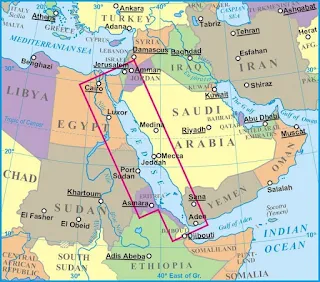The crisis of the red sea .
The crisis of the Red Sea and the difficulty of navigation in it. It raised fears of rising inflation rates in the world. Due to the delay in the arrival of cargo ships passing through the Red Sea, whether coming from India or China, to Europe. Or ships coming from Europe on their way to Asia in general. International shipping companies should avoid passing through the Red Sea. It represents high costs and shipping companies divert their ships to an alternative route, which is to pass around Africa via the Cape of Good Hope route. It represents the high fuel cost of this route, in addition to the cost of delaying the receipt of shipments carried by ships. Consequently, the world will face a new wave of inflation as salaries remain stable. We find many labor strikes demanding an increase in salaries in order to confront the wave of inflation if the crisis continues.
Shipping companies changed the course of their ships in the Red Sea as a result of targeting the Houthis, a Yemeni armed group that uses missiles and drones to attack Israeli ships.
Or ships carrying goods to the Israeli market, in solidarity with the people of the Gaza Strip and to put pressure on Israel to stop the war in Gaza. Since October 7, Israel has been attacking Gaza with planes and missiles. The Red Sea region entered into tension due to the sending of warships by America and Britain. It began attacking Houthi sites inside Yemen. The ceasefire in Gaza represents a basic requirement to save the global economy. From a massive wave of inflation.
The rise in maritime shipping costs to up to 170% of shipping costs before the tension in the Red Sea represents a number that can never be ignored.
<script async src="https://pagead2.googlesyndication.com/pagead/js/adsbygoogle.js?client=ca-pub-7519727374201004"
crossorigin="anonymous"></script>




Comments
Post a Comment